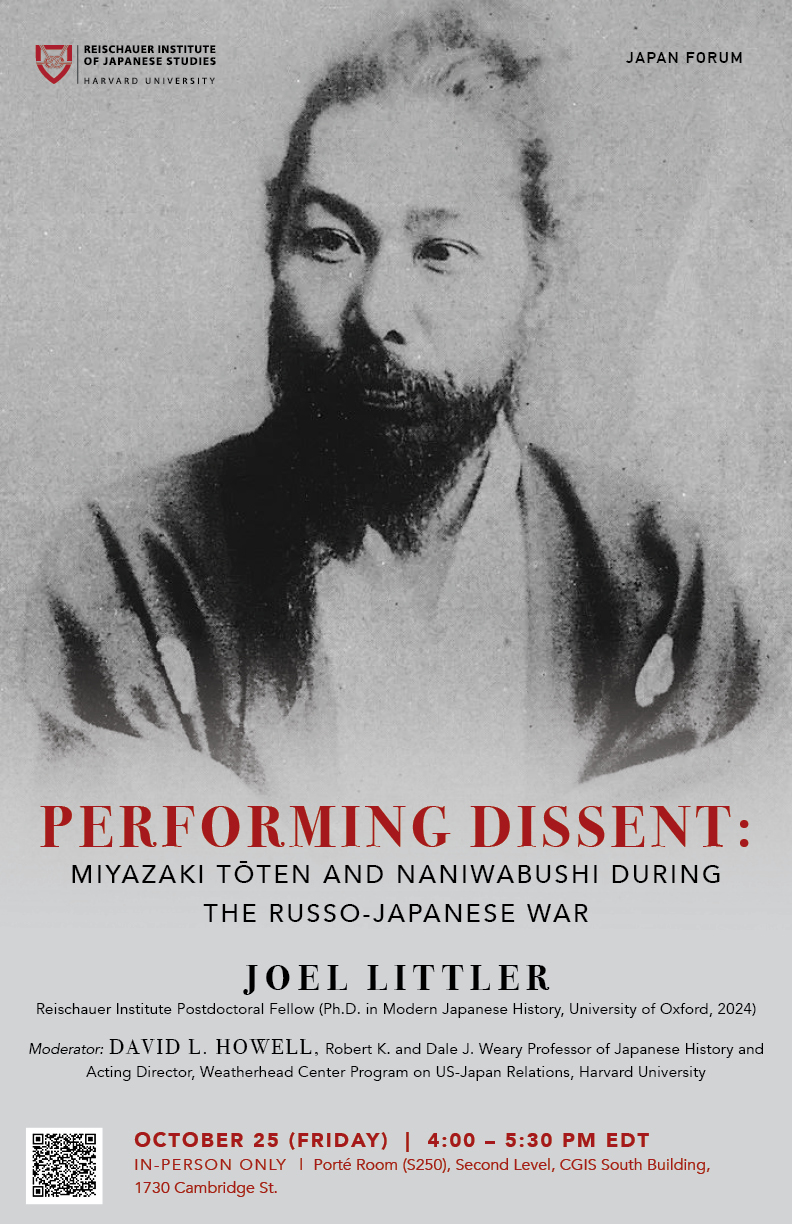Performing Dissent: Miyazaki Tōten and Naniwabushi during the Russo-Japanese War
[NEW DATE] 2024 October 25 (Friday)
The talk will focus on how the popular intellectual and revolutionary activist, Miyazaki Tōten (1871-1922), used naniwabushi as a form of democratic protest and intellectual exchange during the Russo-Japanese Transwar Period (1901-1909). Naniwabushi is little known today, but it was one of the most popular forms of entertainment in the early twentieth century. Performers alternated between singing and spoken narrative accompanied by a shamisen, and the audience engaged in frequent call-back with the performer. Joel examines how Miyazaki Tōten created ‘new’ naniwabushi to deliberately link the techniques and rhetoric of the Freedom and People’s Rights Movement from the 1880s to protest Japan’s imperialism even during its war with Russia. Tōten used naniwabushi to articulate his concepts of autonomous freedom, nihilism, and anarchist communitarianism in a time usually characterized by the heavy suppression of dissent. The study of Tōten’s naniwabushi performances counters the impression of the wholesale embrace of nationalism and support for Japanese imperialism and shows how Japan’s urban poor engaged in political discourse through popular entertainment that was critical of Japanese expansion.
Please note that this is an in-person only event.
Reischauer Institute Japan Forum
